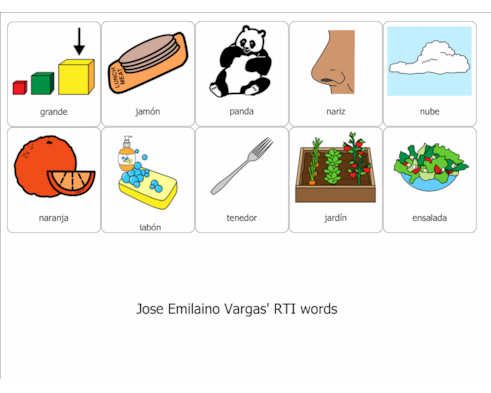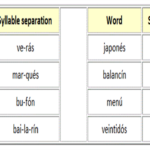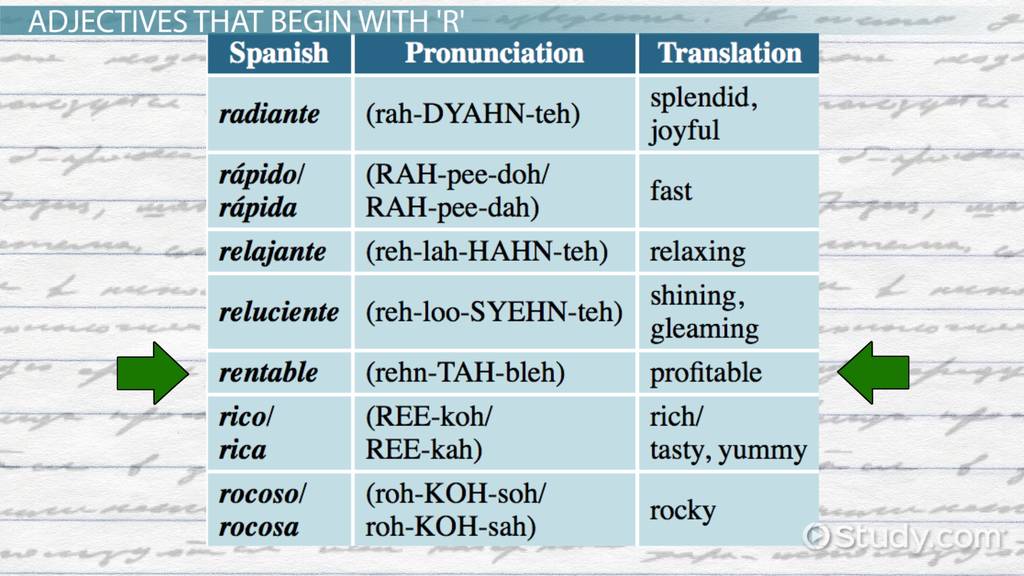Words That Start With N In Spanish
1. Nada – nothing
2. Naranja – orange
3. Nata – cream
4. Nave – ship
5. Nido – nest
6. Nieve – snow
7. Niño – child/boy
8. Nivel – level
9. Novela – novel
10. Noche – night
11. Nuevo – new
12. Nombre – name
13. Nube – cloud
14. Necesitar – to need
15. Nacional – national
16. Negro – black
17. Naturaleza – nature
18. Nota – note
19. Nubes – clouds
20. Nacimiento – birth
21. Negocio – business
22. Nervioso – nervous
23. Nómada – nomad
24. Noticia – news
25. Novio – boyfriend
26. Nochevieja – New Year’s Eve
27. Navidad – Christmas
28. Negativo – negative
29. Noventa – ninety
30. Naranjada – orangeade
More About
Welcome to the fascinating world of Spanish vocabulary! Today, we embark on a linguistic journey through words that start with the letter ‘N’ in the Spanish language. With over 400 million speakers worldwide, Spanish is not only the second most spoken language globally, but it also boasts a rich and diverse vocabulary that can transport you to different cultures and regions.
When exploring the vast universe of Spanish words that begin with ‘N’, one encounters a captivating collection of terms that reflect the language’s historical, cultural, and geographical influences. From nouns to adjectives, verbs to expressions, the letter ‘N’ presents us with a treasure trove of linguistic gems.
To dive into this linguistic adventure, let’s start with nouns. Spanish offers an array of fascinating ‘N’-words that describe objects, people, and places. For instance, the noun “nube” translates to “cloud,” allowing us to envision the fluffy cumulus formations that adorn the sky. Similarly, “naturaleza” depicts the intricate beauty and wonders of nature. Picture yourself exploring lush rainforests, admiring colorful flora and fauna while uttering this delightful word.
Moving on to adjectives, one ‘N’-word that immediately comes to mind is “nuevo.” This adjective means “new” and can be found in various contexts, from describing recently purchased items to new beginnings. It carries a sense of excitement and novelty, making it a particularly popular term in daily conversations among Spanish speakers.
Verbs are the pillars of any language, enabling individuals to express actions and ideas. In Spanish, “nadar” represents the act of swimming. As you utter this verb, imagine yourself gliding through crystal-clear waters, embracing the freedom and tranquility it brings. Our linguistic expedition wouldn’t be complete without delving into the realm of idiomatic expressions. A well-known one starting with ‘N’ is “no hay mal que por bien no venga.” This proverbial phrase meaning “every cloud has a silver lining” reminds us to seek positivity and hope even in challenging circumstances.
As we explore the ‘N’-words in Spanish, we cannot ignore the cultural aspects that often shape a language’s lexicon. Spanish, with its diverse origins and influences, reflects the historical and geographical tapestry of the regions it spans. For example, words like “nopal” and “nachos” trace their roots back to Mexico, revealing the culinary richness and cultural significance of traditional Mexican cuisine.
Moreover, studying words that begin with ‘N’ provides a window into the vast richness of Spanish-speaking countries. From “Nicaragua” to “Nigeria,” countries themselves become vibrant ‘N’-words that showcase the global reach of the Spanish language. Each country evokes unique images, experiences, and traditions that enrich the tapestry of Spanish vocabulary.
This introductory glimpse into ‘N’-words in the Spanish language only scratches the surface of the linguistic wonders that await exploration. From nouns to idiomatic expressions, each ‘N’-word carries its own distinct meanings and cultural connotations, encapsulating the diversity and beauty of the Spanish language.
Whether you are a language enthusiast, a student, or simply someone intrigued by the melodies of Spanish, this linguistic journey promises to expand your vocabulary and broaden your horizons. Join us in discovering the world of Spanish words that start with ‘N’ and allow these linguistic treasures to transport you to colorful destinations and unveil the richness of the Spanish-speaking world.
FAQs:
1. ¿Qué significa la palabra “niño” en español?
– La palabra “niño” en español significa “child” en inglés.
2. ¿Cuál es el país de origen del flamenco?
– El flamenco tiene su origen en España.
3. ¿Cuántas lenguas se hablan en España?
– En España se hablan cuatro lenguas oficiales: español, catalán, gallego y vasco.
4. ¿Cuál es la capital de México?
– La capital de México es la Ciudad de México.
5. ¿Qué es una tapa en la gastronomía española?
– Una tapa es una pequeña porción de comida que se ofrece de forma gratuita junto a una bebida.
6. ¿Cuál es la montaña más alta de Sudamérica?
– La montaña más alta de Sudamérica es el Aconcagua, ubicado en Argentina.
7. ¿Cuál es la moneda oficial de Colombia?
– La moneda oficial de Colombia es el peso colombiano.
8. ¿Cuál es la segunda lengua más hablada en el mundo?
– La segunda lengua más hablada en el mundo es el español.
9. ¿Cuál es el deporte más popular en España?
– El fútbol es el deporte más popular en España.
10. ¿Qué significa la palabra “noche” en español?
– La palabra “noche” en español significa “night” en inglés.

















